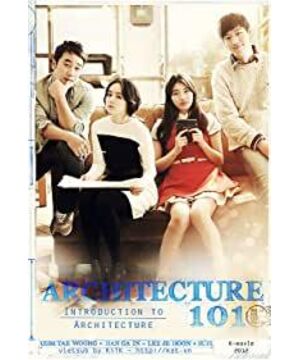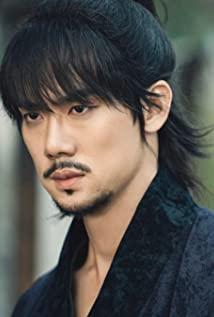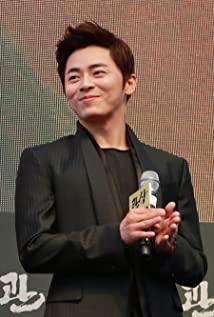I was a little sleepy on weekends and didn't want to waste time sleeping, so I accidentally opened this film and wanted to mention God. For me, who has watched three Korean dramas in recent months, there are no surprises in the film itself. The first love of youth, handsome men, beauties, fried chicken, beer, and the first snow, all elements cannot be more "Korean drama". But after looking at "You at the Same Table" last week in the cinema with a friend who studied architecture, I feel that there is still something to say.
Both "The Same Table" and "Architecture" appeal to the same human emotion: pure and true first love vs. fake and ugly reality, the comparison shows the vicissitudes of life. From a commercial point of view, there will always be a market for such a theme.
Young people are the most emotional group of all potential audiences. Whether bitter or sweet, youth is a life stage that most people often look back on. When I was young and ignorant, even if there were no wonderful stories, I still left the most authentic emotional experience. Stepping into the society from school, people with very different personalities somehow feel that they have the same social imprint.
Not long ago, I read an article written by Jiang Fangzhou, saying that "the biggest enemy of young people is young people who grow up." This sentence touched my heart.
Of course, it doesn't mean that everyone will become hideous when they grow up, but the so-called maturity and sensible brought by the passage of time can really easily wipe out the sincerity that people retain when they are not deep in the world.
I have always felt that being young is a sad word.
To put it a little bit bigger, that kind of stupidity, pureness, and truth are the forces that promote social progress. If you don't believe me, you can read more biographies. Only those who are stupid, pure and sincere dare to challenge the existing social state and forget themselves to do things other than "making themselves safer and more comfortable".
Consciously or unconsciously, the process of socialization will eliminate the good qualities in people.
That's why the love and perseverance at the beginning of life is so moving.
"Introduction to Architecture" pays homage to the stupid, pure, and true young people, and "You at the Same Table" also attempts to criticize the false and ugly of socialization, but the two are different in terms of expression.
There are too many typical techniques of Korean dramas in "Architecture", love & things: the female lead's CD, the male lead's white T and the building that runs through the whole film - the female lead's house; music: listen to that song together ten years ago The popular songs are definitely the common memory of a generation; Family & Friendship & Love: Although Koreans have the talent to make romance films of all themes, they have never just shot little men and women with only love, the family of the hero and heroine. Have a recognizable self-image as well as friends.
Compared with the careful preparation of "Architecture", the white rabbit and frog toys flashed a few times in "The Same Table" is really simple and rude. Only the radio is more integrated into the movie life.
As for the story and narrative logic, I won't say much. The difference between taking the heart and not taking the heart is too obvious.
Movies and TV works with the theme of youth and nostalgia remind the audience of their own youth, and feel the "pure and true" taste from a certain distance. Such movies are worth making and watching. But if the film just blindly tries to resonate with the audience, forgets the story it wants to tell, and doesn't understand the real beauty in the slightest, it's just a hideous act of a group of disgusting adults teaming up to consume youth.
View more about Architecture 101 reviews










